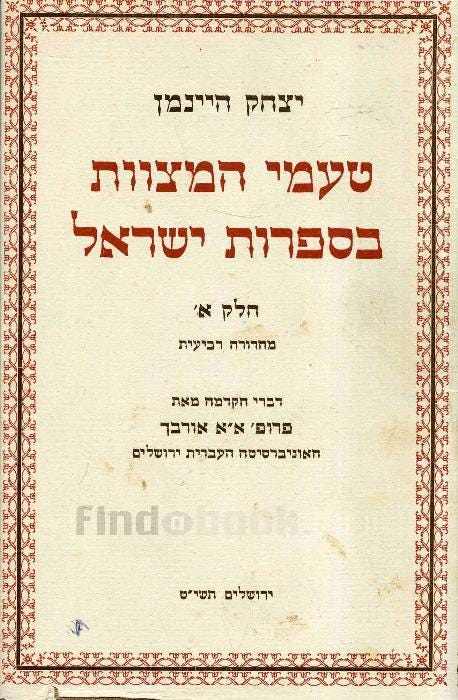Why We Keep Kosher.

A number of people asked me to respond to a provocative article entitled "Why Keep Kosher?" by Reform Rabbi Michael Harvey. The article bases itself off the premise that the Torah's laws of kashrut reflect zoological ignorance. The Torah describes the hare and hyrax as bringing up the cud, whereas modern zoology says otherwise. (Rabbi Harvey is apparently unfamiliar with the hyrax, referring to it with the archaic name of "daman.") To quote Rabbi Harvey: "Do I really want to follow ancient laws set out in a document that isn’t factually accurate?"
Now, I literally wrote the book on this arcane question, The Camel, The Hare & The Hyrax, which is summarized online at this link. It is true that the Torah describes hares and hyraxes as bringing up the cud, and it is also true that hares do not actually do that (whether hyraxes do it is not as clear as Rabbi Harvey believes). But the bottom line is that there are all kinds of statements in the Torah that are not scientifically accurate, whether describing the universe as being created in six days, a global flood four thousand years ago, the sun setting (as opposed to the earth rotating), dew descending, the sky being a firmament, and several verses about the heart and kidneys housing the mind. Religious people following in the approach of Rambam, Rav Hirsch and Rav Kook accept the approach that "The Torah speaks in the language of man" - that it packages its theological lessons in the worldview of the generation that received it. Others reject this as a religiously legitimate approach, or reject it a reasonable approach (if they are atheists). But the question of the Authorship of the Torah hardly rests on a single verse about the hare and hyrax.
Rabbi Harvey then segues to discussing potential reasons for keeping kosher. He spends some time dismissing the notion that kosher creatures are healthier to eat. That's something of a straw man; true, Rambam believed it, but how many people seriously argue that today?
The Torah doesn't give reasons for kashrut. But contrary to Rabbi Harvey's description of this as a "problem," it's not a bug - it's a feature. There are only two cases where the Torah gave reasons for commandments, and we know how that ended. It's much better for the Torah not to spell out the reasons for the commandments.
Rabbi Harvey writes that "If you ask the literalist (by which he appears to mean the believing Jew - N.S.), the answer is a short one: “Because God said so.” On the other hand, says Rabbi Harvey, if you keep kosher for reasons such as making oneself feel closer to God, or identifying with the Jewish nation, or connecting to Jewish tradition, or some other reasonable explanation, then you're in line with Reform Jews who keep kosher.

This is nothing less than a hijacking of the classical rationalist view of kashrut. Yes, we are obligated to keep kosher because God said so, but God said so for a reason! For centuries, rabbis have been suggesting various rational explanations for the laws of kashrut - it's not a Reform invention!
And while we might not be able to determine all the reasons with certainty, we can certainly suggest several rational possibilities. There may even be layers of reasons - one reason for having a dietary code of any sort (in terms of learning and practicing control, and/or maintaining a distinct Jewish identity), and then a secondary layer of reasons determining which animals would be permitted and which would be forbidden (which could be due to the cultural circumstances as the time of the giving of the Torah, as some Rishonim imply). And then there can be a third layer of reasons as to why people keep kosher today - in terms of connecting to Torah, to the Jewish nation, to three thousand years of tradition.
Rabbi Harvey says that his point is that Reform Jews (unlike Orthodox Jews) can make an "informed choice" as to whether they find any of the reasons adequate, and whether they wish to keep fully kosher, "kosher-style," or nothing. But Orthodox Jews can also be informed; we can be perfectly aware that hares do not bring up the cud, and we can believe that there are rational reasons for keeping kosher.
The difference is as follows. Michael Harvey, as a Reform Rabbi, believes that people are perpetually entitled to choose whether to implement their informed choice. Orthodoxy, on the other hand, means choosing to consider oneself commanded - choosing to commit.


